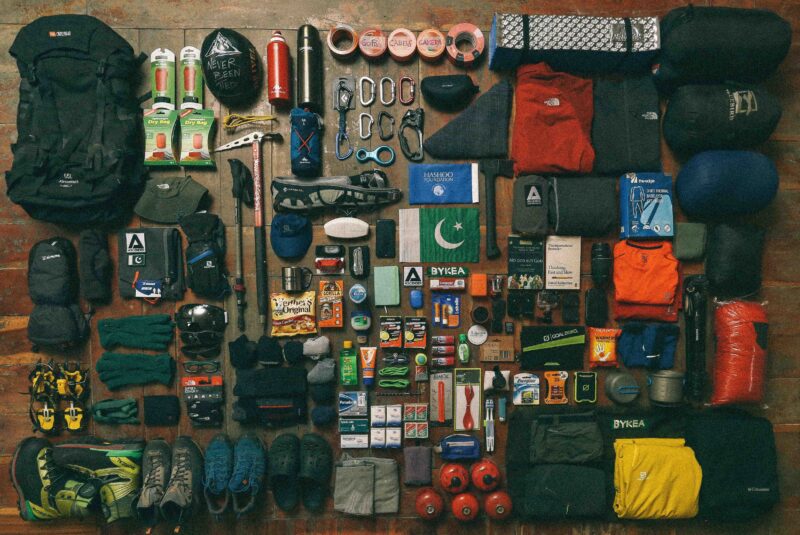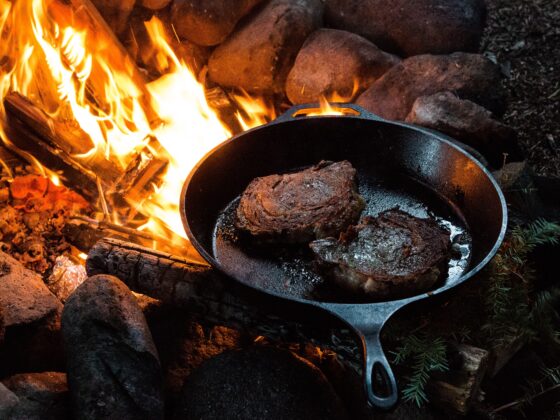Avid campers understand the importance of having reliable and well-maintained gear. Whether you’re embarking on a weekend getaway or planning a month-long expedition, the condition of your camping equipment can make or break your experience. Taking proactive steps to extend the lifespan of your gear is not only cost-effective but also ensures your safety and comfort in the great outdoors. In this article, we will detail all the expert tips on when to repair or replace your camping gear, with a focus on camping tents, power stations, and camping tools.
Signs of wear and tear in camping gear
Before we delve into the repair or replacement options for camping gear, it’s crucial to know the signs of wear and tear. Regularly inspecting your equipment will help you identify potential issues early on and prevent them from escalating. When it comes to camping tents, keep an eye out for tears, holes, or fraying seams. These can compromise the tent’s waterproofing capabilities and overall structural integrity. Additionally, check the condition of zippers, poles, and guy lines. If they are damaged or no longer functioning properly, it may be time for repair or replacement.
Repairing vs. replacing camping gear
Once you’ve identified the wear and tear in your camping gear, the next step is to determine whether it can be repaired or if it’s time for a replacement. Simple repairs, such as patching small holes in your camping tent or replacing a broken zipper, can often be done at home with basic sewing skills and the right tools. However, if the damage is extensive or compromises the safety and functionality of the gear, it’s best to invest in a new one. Remember, your safety should always be the top priority when making this decision.
How to properly clean and store camping gear
Properly cleaning and storing your camping gear is essential for maintaining its longevity. After each camping trip, take the time to clean your equipment thoroughly. For camping tents, use a mild soap and water solution to remove dirt and debris. Avoid using harsh chemicals or abrasive materials that could damage the fabric. Allow the tent to air dry completely before storing it. When it comes to storing your gear, make sure it’s completely dry to prevent mold and mildew growth. Opt for a cool, dry place, away from direct sunlight and extreme temperatures.
Tips for extending the lifespan of a camping tent
A camping tent is often the most critical piece of equipment for any outdoor adventure. To maximize its lifespan, here are a few expert tips. Firstly, always use a groundsheet or tarp underneath your tent to protect it from abrasions and moisture. Secondly, avoid setting up your tent on rough or rocky surfaces that could puncture the fabric. Additionally, take care when pitching and packing up your tent, as rough handling can cause unnecessary wear and tear. Lastly, apply a waterproofing treatment to your tent periodically to enhance its ability to repel water and extend its lifespan.
Maintaining a camping power station for longevity
In today’s camping world, a reliable power source is crucial for charging devices, powering lights, and running other essential equipment. If you own a camping power station, proper maintenance is key to ensure its longevity. Regularly check the battery level and recharge it as needed, even during periods of non-use. Store the power station in a cool, dry place and avoid exposing it to extreme temperatures. Clean the external ports and connections regularly to prevent dust and debris build-up, which can affect performance. Following these maintenance practices will help you get the most out of your camping power station.
Where to find camping equipment stores for repairs and replacements
When it comes to repairing or replacing camping gear, knowing where to find a reliable and reputable camping equipment store is crucial. Research local stores or online retailers that specialize in outdoor gear and have a good reputation for quality products and services. Read customer reviews and seek recommendations from fellow campers. These stores often have knowledgeable staff who can guide you in making informed decisions about repairs or replacements for your camping gear. Remember to keep your budget in mind and compare prices before making a purchase.
Essential camping tools and when to repair or replace them
Apart from camping tents, there are several essential tools that every camper should have. These tools include camping stoves, lanterns, knives, and multi-tools. Regularly inspect these tools for signs of wear, such as rust, loose parts, or dull blades. For camping stoves, check for clogged fuel lines or malfunctioning burners. Most repairs for these tools can be done at home with the right tools and replacement parts. However, if the damage is severe or compromises safety, it’s best to invest in a new tool. Remember, it’s better to be safe than sorry when it comes to camping equipment.
Expert advice on assessing the condition of camping gear
Assessing the condition of your camping gear can sometimes be challenging, especially if you’re not familiar with the intricacies of each piece. If you’re uncertain about the extent of damage or the viability of repair, don’t hesitate to seek expert advice. Consult with professional gear repair services or reach out to the manufacturers directly. They will have the expertise to assess the condition of your gear and provide recommendations for repair or replacement. Investing in professional advice can save you time, money, and potential safety hazards in the long run.
Maximizing the lifespan of camping gear
Taking care of your camping gear is essential for maximizing its lifespan and ensuring a safe and enjoyable outdoor experience. Regularly inspect your gear for signs of wear and tear, and promptly address any issues through repair or replacement. Properly cleaning and storing your gear will also contribute to its longevity. Remember to follow expert tips specific to each piece of equipment, such as camping tents and power stations.
Lastly, seek expert advice when in doubt about the condition of your gear. By following these tips, you can extend the life of your camping gear and make the most of your outdoor adventures.



